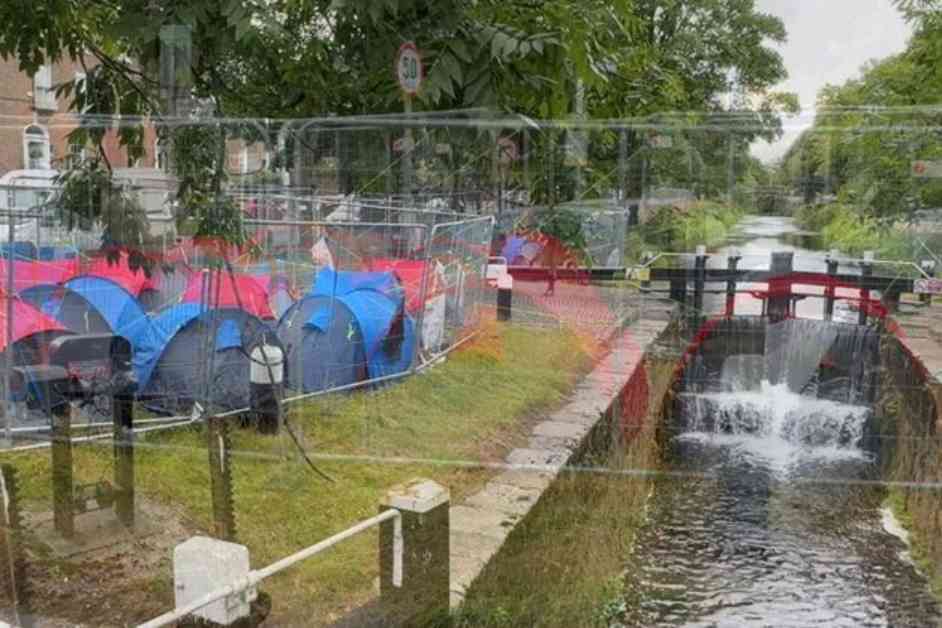A new tent camp has been set up along Dublin’s Grand Canal, just a short distance away from where the dismantling of a large encampment occurred on Mount Street earlier this year. Despite efforts to remove these camps throughout the summer, the number of international protection applicants seeking government assistance has remained consistent. With an average of over 400 applicants per week from mid-May to mid-July, the need for suitable accommodation for asylum seekers in Dublin is evident.
Challenges Faced by Asylum Seekers
The ongoing struggle for asylum seekers in Dublin is a pressing issue that cannot be overlooked. The recent establishment of a tent camp along the Grand Canal highlights the lack of adequate accommodation for those seeking international protection. While the government has made efforts to address this issue, Labour leader Ivana Bacik emphasizes that the current situation is inhumane and unsustainable.
Bacik’s call for urgent action to provide the necessary capacity in reception and integration centers is crucial in ensuring the well-being of asylum seekers. The presence of security fences and barriers is not a long-term solution to the housing crisis faced by those forced to sleep in tents in public spaces. The need for swift government intervention to fulfill its obligations to provide suitable accommodation for international protection applicants is paramount.
Government Response and Public Order Incidents
The recent public order incidents and fires at locations designated for asylum seekers, such as the former Crown paints factory in Coolock and the Thornton Hall site, have raised concerns about delays in government action. Despite these challenges, Deputy Bacik emphasizes the importance of upholding international and human rights obligations in providing accommodation for those seeking refuge in Ireland.
Bacik’s advocacy for the repurposing of vacant, publicly owned buildings, such as Baggot Street Hospital, reflects a proactive approach to addressing the housing needs of asylum seekers. The government’s response to public protests and disturbances should not detract from its responsibility to increase the capacity of accommodation for international protection applicants. By creating legal pathways for employment and increasing accommodation levels, the government can demonstrate its commitment to welcoming new residents and utilizing their skills and expertise.
Current Status and Future Prospects
According to the Department of Integration, there are currently 2,509 international protection applicants awaiting offers of accommodation in Ireland. The consistent number of applicants seeking international protection since May underscores the urgent need for suitable housing solutions. As the government works to address the housing crisis faced by asylum seekers, it must prioritize increasing the capacity of accommodation and creating legal pathways for employment to facilitate integration and support for new residents.
In conclusion, the establishment of a tent camp along Dublin’s Grand Canal highlights the ongoing challenges faced by asylum seekers in securing suitable accommodation. Government intervention is crucial in addressing the housing needs of international protection applicants and upholding Ireland’s obligations to provide refuge and support to those in need. By taking proactive measures to increase accommodation capacity and create legal pathways for employment, the government can demonstrate its commitment to welcoming new residents and fostering a sense of community and inclusivity in Ireland.












